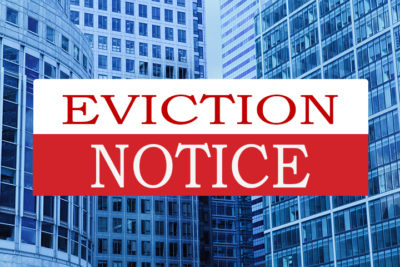It is common to see commercial leases that grant the landlord broad powers upon the tenant’s default. Some variation of the following can often be found in a lease:
Upon default by Tenant, Landlord may immediately re‑enter the Premises and take possession thereof and all permanent improvements thereon and remove or put out the Tenant or any other persons who may be thereon by force, summary action or otherwise, together with all personal property found therein and such property may be stored in a public warehouse or elsewhere at the cost of and for the account of Tenant, all without service or notice and make such alterations and repairs as may be necessary in order to relet the Premises.
However, just because a landlord includes language such as the above in a lease, that doesn’t make it enforceable. In fact, this kind of a clause, also known as “self-help”, is forbidden and unenforceable in Florida.
Issues With Engaging In A Self-Help Eviction
Though tempting, landlords should never engage in self-help evictions. The penalty for violating a tenant’s possession can be costly. In such circumstance, the landlord could face claims for breach of lease, wrongful eviction, and/or tortious interference with business relationships. In such circumstances, a successful tenant could be awarded lost profits, as well as other damages stemming from the wrongful eviction, such a loss of inventory or other property. The landlord could also be exposed to punitive damages.
In fact, at least one Florida court has held that even just a landlord’s threat of a lockout can support a tenant’s claim for constructive eviction.
In Florida, there are only three ways for landlords to take possession of the rented premises from tenants: an action for unlawful detainer pursuant to Fla. Stat. § 82.04, an action for ejectment, and an eviction pursuant to Fla. Stat. § 83.20. A landlord may also take possession when the tenant surrenders the premises, or abandons it.
What Exactly Is Abandonment?
Abandonment is presumed when:
- The landlord reasonably believes that the tenant has been absent from the rented premises for a period of 30 consecutive days.
- The rent is not current; and
- A notice pursuant to 83.20(2)has been served and 10 days have elapsed since service of such notice.
All three of these factors must be satisfied for the landlord to presume abandonment. The landlord’s actual knowledge of the tenant’s abandonment will also entitle the landlord to take over the premises, but the statute doesn’t define “actual knowledge.” Under Florida law, these factors have been held to demonstrate abandonment:
- The tenant or its employees haven’t been observed at the premises;
- The tenant hasn’t sued its parking spaces;
- The tenant is not claiming its mail or sending out any mail;
- The tenant doesn’t answer phone calls, or the phone number is disconnected altogether;
- The utilities have been shut off; or
- The tenant’s creditors have sought information from the landlord on the tenant’s whereabouts.
Conclusion On Self-Help Eviction
Though it can be frustrating and feel unfair when a tenant isn’t paying rent, landlords have to remain patient when seeking to evict their tenants. Failure to follow the correct procedures ultimately isn’t worth the short-term benefits a self-help eviction might bring.

